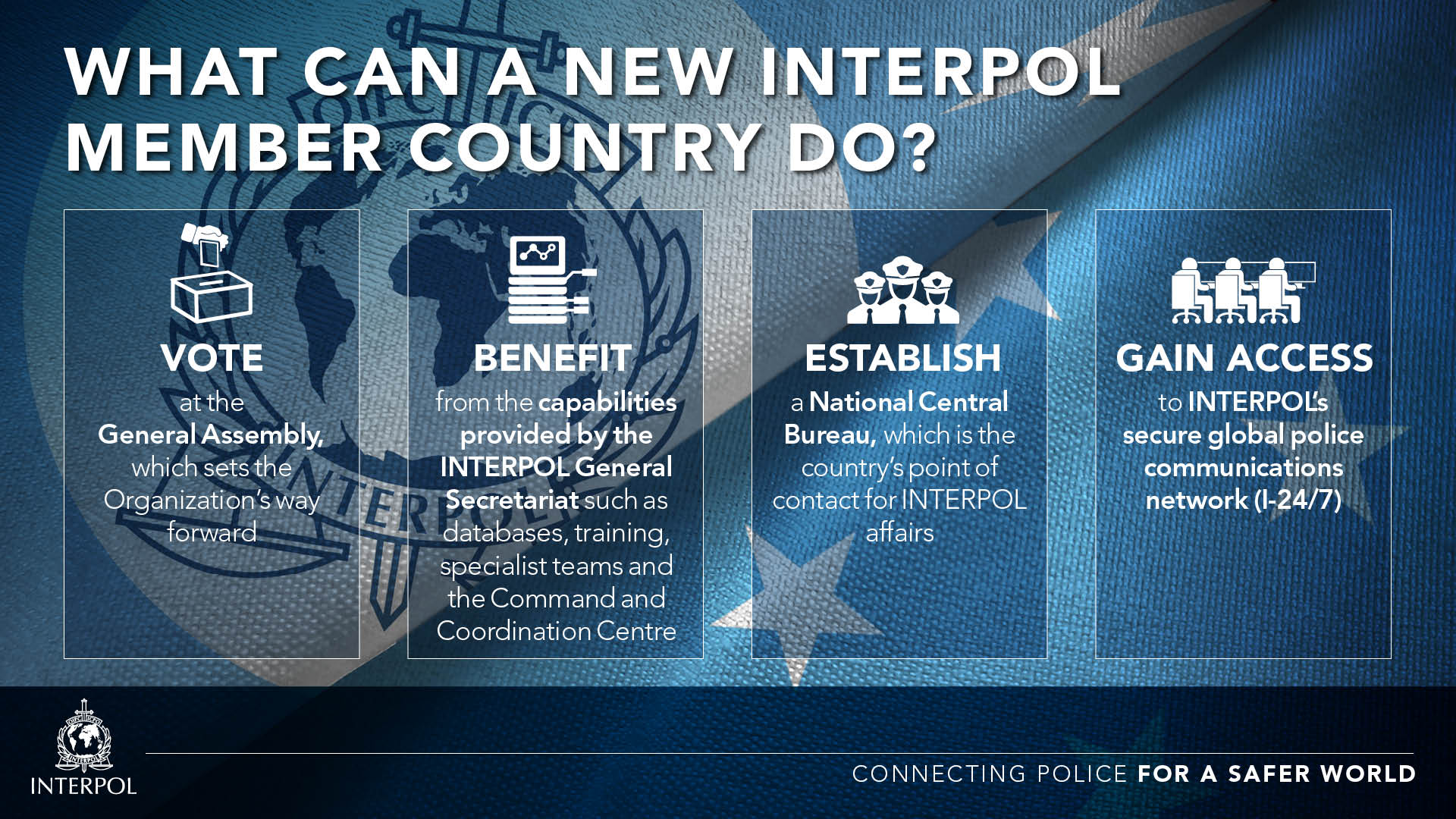The International Criminal Police Commission
The International Criminal Police Commission (ICPC) was the predecessor to INTERPOL. It was created during the 2nd International Police Congress in Vienna in 1923.
The countries participating in the 1923 Congress were: Austria, Czechoslovakia, Denmark, Egypt, France, Fiume, Germany, Greece, Hungary, Italy, Japan, Latvia, Netherlands, Poland, Romania, Sweden, Switzerland, Turkey, United States and Yugoslavia.
These were not formally all member countries, since at the time, membership of the ICPC was on an individual elected basis (generally Chiefs of police) not countries.
The International Criminal Police Organization
Although we are widely known as INTERPOL, our formal name is The International Criminal Police Organization-INTERPOL. It was created by the adoption of our Constitution on 13 June 1956 at the 25th General Assembly in Vienna.
The founding members are:
Argentina, Australia, Austria, Belgium, Brazil, Burma, Cambodia, Canada, Ceylon, Chile, Colombia, Costa Rica, Cuba, Denmark, Dominican Republic, Egypt, Eire, Finland, France, Federal German Republic, Greece, Guatemala, India, Indonesia, Iran, Israel, Italy, Japan, Jordan, Lebanon, Liberia, Libya, Luxembourg, Mexico, Monaco, Netherlands, Netherlands Antilles, New Zealand, Norway, Pakistan, Philippines, Portugal, Saar, Saudi Arabia, Spain, Sudan, Surinam, Sweden, Switzerland, Syria, Thailand, Turkey, United Kingdom of Great Britain and Northern Ireland, United States of America, Uruguay, Venezuela, Yugoslavia.
Criteria for membership

Article 4 of the INTERPOL Constitution sets out both the criteria and the process for becoming a Member of the Organization. In 2017, the General Assembly adopted Resolution GA2017-86-RES-01 interpreting Article 4 and clarifying both the process and criteria for membership.
Growth in membership
Our membership has grown over the years, partially due to newly-created sovereign States joining the Organization, notably following a wave of decolonisation in the second half of the 20th Century and the end of the Cold War.
By 1967, we had 100 member countries, which increased to 150 countries by 1989 and reached today’s 196 in 2023.






